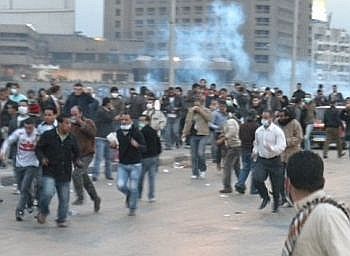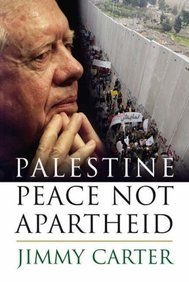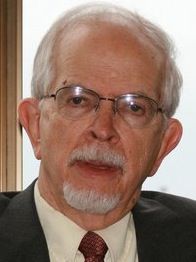
Publisher:
Bonnie King
CONTACT:
Newsroom@Salem-news.com
Advertising:
Adsales@Salem-news.com

~Truth~
~Justice~
~Peace~
TJP
Feb-05-2011 23:14

 TweetFollow @OregonNews
TweetFollow @OregonNews
The Arab World Is On Fire
James M. Wall Salem-News.comThe revolution came suddenly, at least it did for those who were not paying attention.
 Cairo during protests this week. Photo by Kendra Solo |
(CHICAGO) - Uri Avnery, veteran and venerable Israeli peace activist, captured the moment:
"What is happening now in Egypt will change our lives.
"As usual, nobody foresaw it. The much-feted Mossad was taken by surprise, as was the CIA and all the other celebrated services of this kind. Yet there should have been no surprise at all – except about the incredible force of the eruption. . . .
"The turmoil in Egypt was caused by economic factors: the rising cost of living, the poverty, the unemployment, the hopelessness of the educated young. But let there be no mistake: the underlying causes are far more profound.They can be summed up in one word: Palestine. In Arab culture, nothing is more important than honor. People can suffer deprivation, but they will not stand humiliation."
In Egypt, as the life-changing events unfolded, courageous Western journalists were on the scene, under attack from President Mubarak’s forces in his last desperate attempt to hold on to power. They came there because they knew the revolution that began in Tunisia had reached Egypt.
These journalists were not in Gaza during Israel’s attack on a trapped civilian population in December, 2008. They were not there because Israel barred them from entering Gaza. More importantly, they were not there because their editors, conditioned to faithfully follow Israel’s narrative, did not send them there.
The Israeli control over its narrative finally, and definitively, imploded in Cairo in 2011, because of the courage and determination of the Egyptian people in Tahrir Square, where what happened, in Uri Avnery’s words, “will change our lives”.
Among the journalists who risked their lives in Tahrir Square was New York Times columnist Nicholas Kristof, who concluded his Friday column:
Whatever Mr. Mubarak is planning, it does feel as if something has changed, as if the Egyptian people have awoken. When I needed to leave Tahrir Square today, several Egyptians guided me out for almost an hour through a special route so that I would not be arrested or assaulted — despite considerable risk to themselves. One of my guides was a young woman, Leila, who told me: “We are all afraid, inside of us. But now we have broken that fear.”The lion-hearted Egyptians I met on Tahrir Square are risking their lives to stand up for democracy and liberty, and they deserve our strongest support — and, frankly, they should inspire us as well. A quick lesson in colloquial Egyptian Arabic: Innaharda, ehna kullina Misryeen! Today, we are all Egyptians!
Kristof eloquently describes what is now fully exposed as a brutal dictatorship, whose collapse sends a warning to the shaky thrones of the Middle East, from Tel Aviv to Damascus, Amman, and Riyadh in the Levant, and in the Arab states in the Magreb of North Africa.
Who are the ehna (the we) that Kristof calls to be Egyptians (Misryeen) innaharda (literally, in the light of this day)?
We encompass the kullina (all of us) who are called to support the bravery, the fortitude, the remarkable restraint, and the demand for freedom expressed in Cairo’s Tahrir Square this past week.
And, most importantly, the ehna are the kullina who must now join those Misryeen and demand “enough and no more”.
The revolution came suddenly, at least it did for those who were not paying attention. It started in Tunisia, as Noam Chomsky wrote in In These Times:
“The Arab world is on fire,” al-Jazeera reported on January 27, while throughout the region, Western allies “are quickly losing their influence.”The shock wave was set in motion by the dramatic uprising in Tunisia that drove out a Western-backed dictator, with reverberations especially in Egypt, where demonstrators overwhelmed a dictator’s brutal police.
What say the ruling powers about this “fire” as the largest domino in the region prepares to fall? The Christian Science Monitor reports this reaction in Israel and within the Palestinian Authority leadership:
Both Israel and the Palestinian Authority officials fear the empowerment of the Muslim Brotherhood in Egypt might prompt Cairo to ease access to Gaza, and help Hamas consolidate its rule there.Egypt has the keys to Gaza’s only border not controlled by Israel. That leaves President Mubarak’s successor, whoever it may be, with the option to open up the stifled territory of 1.5 million to trade and civilian traffic, or to continue the restrictions that weigh on the economy and the Islamic militant government there.
The US is struggling to find its footing. Marc Lynch, an associate professor of political science and international affairs at George Washington University, writes on his Foreign Policy blog that President Obama must walk a delicate line between the US’s long alliance with Egyptian rulers and the passionate protests that are overturning the establishment.
What do the protestors expect from Obama? Lynch writes:
Their protest has a dynamic and energy of its own, and while they certainly want Obama to take their side forcefully and unequivocally they don’t need it.What they do need, if they think about it, is for Obama to help broker an endgame from the top down — to impose restraints on the Egyptian military’s use of violence to repress protests, to force it to get the internet and mobile phones back online, to convince the military and others within the regime’s inner circle to ease Mubarak out of power, and to try to ensure that whatever replaces Mubarak commits to a rapid and smooth transition to civilian, democratic rule. And that’s what the administration is doing.
The administration’s public statements and private actions have to be understood as not only offering moral and rhetorical support to the protestors, or as throwing bones to the Washington echo chamber, but as working pragmatically to deliver a positive ending to a still extremely tense and fluid situation.
Israeli leaders are largely silent, after initially demanding, unsuccessfully, Obama’s full support for Mubarak.
Israel relied on Mubarak to police Gaza’s southern border, thereby tainting Egypt as a partner in the crimes Israel has committed against Gaza.
Israel’s generated fear of the Muslim Brotherhood, as usual, is exaggerated. The government that succeeds Mubarak’s dictatorship may not be as strongly influenced by the Brotherhood as Israel has warned.
Hannah Allam writes from Cairo for McClatchy Newspapers, that even the Muslim Brotherhood was behind the curve, when the fire started:
The Muslim Brotherhood, long relegated to the fringes of Egyptian politics, is playing a growing role in the popular revolt against President Hosni Mubarak, but is still defining its goals for the country, according to political analysts familiar with the Islamist movement.Under the one-party regime that Mubarak ran for three decades, the mostly mainstream Brotherhood was officially outlawed but generally tolerated. Still, it went on to become Egypt’s best-organized political movement, claiming 400,000 members.
That would be 400,000 Brotherhood members in a population of 83 million Egyptians. Long demonized by the US and Israel as a fundamentalist party akin to Al Quida and the Taliban, the Brotherhood has its fundamentalist element (as do the Republicans, with their “Tea Party”), but the Brotherhood, and the rest of the Egyptian population, have the potential to create a Middle Eastern democracy more along the lines of a secular Turkey, than one that would follow the Taliban model.
Hannah Allam spoke with Alaa al Aswany, an acclaimed Egyptian novelist, about the role of the Brotherhood in any future Egyptian government. Aswany supports the anti-government protesters. His response:
“The role and influence of the Brother Muslims have been exaggerated intentionally by the Egyptian regime for years, just to send the message to the West that either you accept the dictatorship in Egypt or prepare for another Taliban or Hamas in power. This is not true at all.”
Rami G. Khouri, Editor-at-large of The Daily Star, and Director of the Issam Fares Institute for Public Policy and International Affairs at the American University of Beirut, in Beirut, Lebanon, is a reliable Palestinian scholar on Arab affairs. He urges patience.
On February 4, he wrote:
The process at hand now in Tunisia and Egypt will continue to ripple throughout the entire Arab world, as ordinary citizens realize that they must seize and protect their birthrights of freedom and dignity. . . .The Americans needed 300 years to transition from slavery to civil rights and women’s rights. Self-determination is a slow process that needs time. The Arab world is only now starting to engage in this exhilarating process, a full century after the false and rickety statehood that drunken retreating European colonialists left behind as they fled back to their imperial heartlands.
It takes time and energy to re-legitimize an entire national governance system and power structure that have been criminalized, privatized, monopolized and militarized by small groups of petty autocrats and thieving families. . . . .
Make no mistake about it, we are witnessing an epic, historic moment of the birth of concepts that have long been denied to ordinary Arabs: the right to define ourselves and our governments, to assert our national values, to shape our governance systems, and to engage with each other and the rest of the world as free human beings, with rights that will not be denied forever.

Former US President Jimmy Carter delivered a peace treaty (some would say, forced a peace treaty) on Israel and Egypt in 1979. Both nations responded by building up their respective military forces with US funds, at the expense of their own public. Israel, for its part, showed its gratitude to Carter by immediately violating its Camp David agreement, expanding its settlements in occupied Palestinian land.
Since leaving office in 1981, Carter has become increasingly vocal in his anger over this betrayal. Israel responded, with the support of its American media, political and business allies, by attacking Carter. The latest attack–a law suit against Carter’s book, Palestine: Peace Not Apartheid–was launched by six citizens of Israel, two of whom hold dual citizenship as Americans.
Jason Ditz, writing for Anti-War.com, treated the bogus law suit with the disrespect it deserves:
In a move that calls back to the attempt by Texas cattlemen to sue Oprah Winfrey for “defamation of beef.” an Israeli lawyer has filed a class-action lawsuit against former President Jimmy Carter, seeking $5 million in damages because his book “Palestine: Peace Not Apartheid” allegedly defamed Israel.Attorney Nitsana Darshan-Leitner insisted that Carter’s book violated New York State’s Consumer Protection Laws by asserting things, largely that Israel was not inherently reasonable and Syria was not inherently unreasonable, that “even a child” knows is untrue.
The Washington Post, consistent with its adherence to the Israeli narrative, greeted the lawsuit with a seriousness it did not deserve. In the Post’s Political Bookworm column, Stephen Lowman wrote, ironically, during the Tahrir protests:
From the outset, Carter’s book was criticized in some quarters for being one-sided. For instance, in his [2005] review for The Washington Post, Jeffrey Goldberg wrote:Palestine: Peace Not Apartheid is being marketed as a work of history, but an honest book would, when assessing the reasons why the conflict festers, blame not only the settlements but also take substantial note of the fact that the Arabs who surround Israel have launched numerous wars against it, all meant to snuff it out of existence.”
This too, for Carter, will pass. Meanwhile, the 1979 peace treaty Carter orchestrated with Israel and Egypt, has been exploited and manipulated through suppression of the Egyptian population, and the humiliation and brutalization of the Palestinian people. That could not last. The Tahrir Square uprising demonstrated why this is so. We are all Misryeen today.
The picture above from the New York Times, was taken Friday, February 4, in Tahrir Square by John Moore of Getty Images.
 Journalism was Jim Wall’s undergraduate college major at Emory University, Atlanta, Georgia. He has earned two MA degrees, one from Emory, and one from the University of Chicago, both in religion. An ordained United Methodist clergy person; he and his wife, Mary Eleanor, are the parents of three sons, and the grandparents of four grandchildren. They live in Elmhurst, Illinois.
Journalism was Jim Wall’s undergraduate college major at Emory University, Atlanta, Georgia. He has earned two MA degrees, one from Emory, and one from the University of Chicago, both in religion. An ordained United Methodist clergy person; he and his wife, Mary Eleanor, are the parents of three sons, and the grandparents of four grandchildren. They live in Elmhurst, Illinois.
Jim served for two years on active duty in the US Air Force, and three additional years in the USAF (inactive) reserve. While serving with the Alaskan Command, he reached the rank of first lieutenant.
He has worked as a sports writer for both the Atlanta Journal and Constitution, was editor of the United Methodist magazine, Christian Advocate for ten years, and editor and publisher of the Christian Century magazine for 27 years, starting in 1972. 0);">Time magazine wrote about the new editor, who arrived at the Christian Century determined to turn the magazine into a hard-hitting news publication.
The inspiration for Wall Writings comes from that mindset and from many other sources that have influenced Jim’s writings over the years, including politics, cinema, media, American culture, and the political struggles in the Middle East. Jim has made more than 20 trips to that region as a journalist, during which he covered such events as Anwar Sadat’s 1977 trip to Jerusalem, and the 2006 Palestinian legislative election. He has interviewed, and written about, journalists, religious leaders, political leaders and private citizens in the region. You can write to Jim Wall at jameswall8@gmail.com. Visit Jim's Website: Wall Writings
Articles for February 4, 2011 | Articles for February 5, 2011 | Articles for February 6, 2011

Quick Links
DINING
Willamette UniversityGoudy Commons Cafe
Dine on the Queen
Willamette Queen Sternwheeler
MUST SEE SALEM
Oregon Capitol ToursCapitol History Gateway
Willamette River Ride
Willamette Queen Sternwheeler
Historic Home Tours:
Deepwood Museum
The Bush House
Gaiety Hollow Garden
AUCTIONS - APPRAISALS
Auction Masters & AppraisalsCONSTRUCTION SERVICES
Roofing and ContractingSheridan, Ore.
ONLINE SHOPPING
Special Occasion DressesAdvertise with Salem-News
Contact:AdSales@Salem-News.com

Salem-News.com:
googlec507860f6901db00.html

Terms of Service | Privacy Policy
All comments and messages are approved by people and self promotional links or unacceptable comments are denied.
[Return to Top]
©2025 Salem-News.com. All opinions expressed in this article are those of the author and do not necessarily reflect those of Salem-News.com.